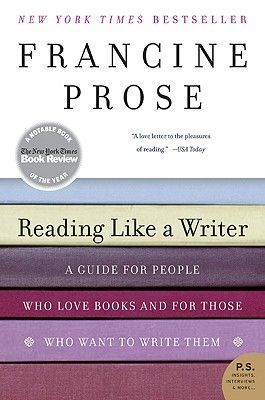Having decided to work on my “must read list”, I felt it was necessary that I make the most of what I read by understanding how to read especially in helping me become a better, well educated writer. Francine Prose’s “guide for people who love books and for those who want to write them” crystallised a lot of the thoughts I’ve always had floating around in my head in a somewhat useless fashion and gave me an awareness that I hadn’t noticed I needed. It follows the model of close reading that had been somewhat dismissed as a form of criticism at Uni as it focuses more on the text: its words, sentences, paragraphs, details and gestures (to name a few), rather than on external influences such as the author’s place in history and literature. This model is extremely useful for a wannabe author because when it comes down to it, writing is near impossible to teach as there are always exceptions to the rule. Prose illustrates that the best way to learn how to write is by example and I couldn’t think of a more enjoyable way to study.
For a bookmark I used a thin notebook so I was continually jotting down little reminders to myself and quotes that, for me, summed up an idea exceptionally well. In fact whenever I read a book now, whether its fiction or non-fiction, I keep a pen handy to jot down particularly well phrased ideas, examples of imagery that will inspire me and even my own thoughts that spin off on a tangent that I could use for a future story or even something that could help me with what I’m writing now.
Here are just some of the things that I noted:
-In Isaac Babel’s short stories, a “moment of violence is directly preceded by a passage of intense lyricism” (Prose 12).
-Jonathan Franzen writes about Paula Fox’s “Desperate Characters” that “small miracles of compression and specificity, tiny novels in themselves…By imagining a dramatic moment as a series of physical gestures- by paying close attention- Fox makes room here for each aspect of her character’s complexity: her liberality, her self-delusion, her vulnerability, and, above all, her married person’s consciousness” (Prose qtd 71).
-Misdirection. Revealing a character through actions or, for example, how the character imagines they’re being viewed through the eyes of another.
-Who is listening?
-“God really is in the details” (Prose 196).
-“Construct their fictions with small but significant details” (Prose 198).
-“In the particular is contained the universal” Samuel Beckett
-“In descriptions of nature one ought to seize upon the little particulars, grouping them in such a way that, in reading, when you shut your eyes you get the picture” Chekhov
-AVOID THE GENERIC.
-“A noun only needs one adjective, the choicest” Isaac Babel.
At the back of the book, Prose lists the books that she recommends be read immediately and I was a little disappointed that out of the hundred or so books she lists, I’ve only read three. I guess that means I have a lot to look forward too!

